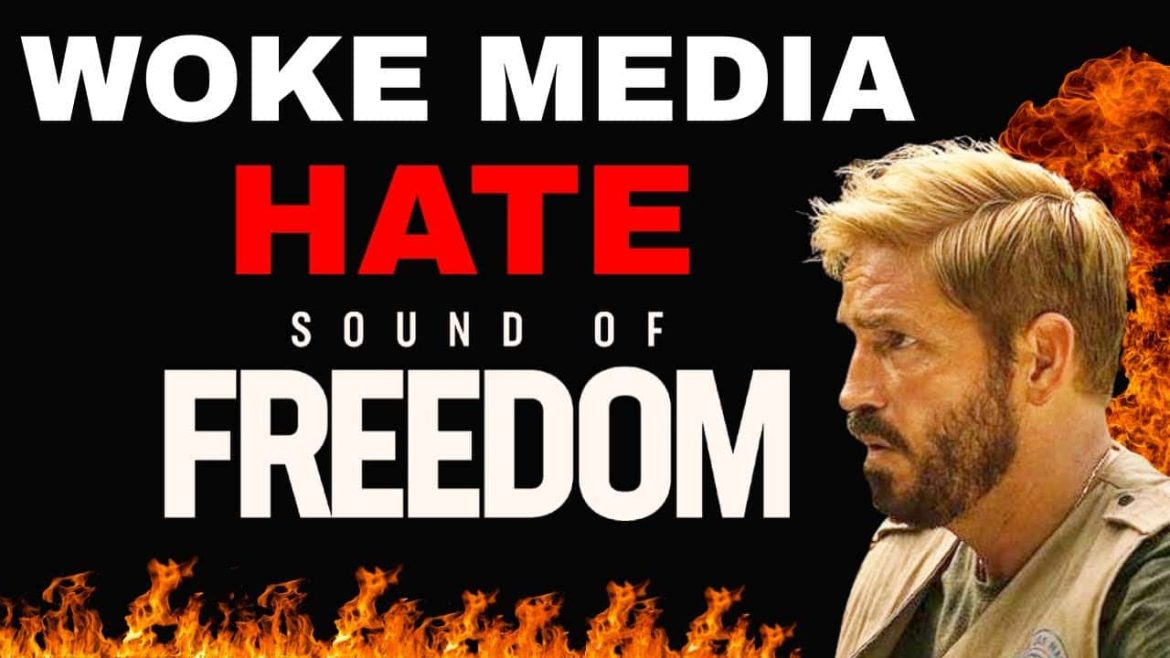I watched this movie this evening and I saw no politics in the film and thought it did a great job of raising awareness for child trafficking. It is disgusting and should be stopped or at least policed better. It truly makes me want a more secure southern border as if we are letting children and families into this country in millions, you know child trafficking is occurring.
“Sound of Freedom,” this summer’s unexpected hit, has ignited a media storm unlike any other. The film, featuring Jim Caviezel, delves into the harrowing true story of a special agent’s mission to rescue a child from the clutches of sex traffickers. But instead of accolades, it’s facing an onslaught of criticism from major media outlets. This reaction raises critical questions about the nature of media bias and the cultural battles shaping our times.
The Media Onslaught Against “Sound of Freedom”
1. Allegations of Political Agendas
Major media players like CNN, The Washington Post, Rolling Stone, and The Guardian have fiercely criticized “Sound of Freedom.” Some have baselessly labeled the film as a nod to QAnon ideologies, while others have downplayed the severity of child sex trafficking, suggesting it’s not as widespread as portrayed.
2. The Stance on Child Sex Trafficking
Contrary to the media’s narrative, official data from the U.S. government highlights the alarming reality of child sex trafficking. This disconnect reveals a troubling tendency in journalism to sideline critical issues based on perceived political leanings.
3. Religious Bias and Personal Attacks
The attack on Jim Caviezel, primarily for his Christian beliefs and alleged promotion of QAnon theories, points to a deeper issue. The media’s targeting of Caviezel reflects a broader pattern of hostility towards certain religious perspectives and those who hold them.
Analyzing the Media’s Motives
1. Ideological Tribalism
The media’s reaction to “Sound of Freedom” can be partially attributed to ideological tribalism. With the film industry and critic community predominantly leaning left, there’s an inherent resistance to narratives that resonate with right-leaning or Christian audiences. This film’s success among such demographics has seemingly triggered a defensive backlash from the media.
2. Narrative Control in Hollywood
Hollywood, traditionally a bastion for liberal creatives, is unaccustomed and often hostile to right-leaning or religiously themed narratives. The success of “Sound of Freedom” challenges this status quo, leading to its dismissal or outright denigration by liberal journalists.
3. The Timing and Cultural Context
Arriving amidst heightened conservative concerns over child protection, “Sound of Freedom” inadvertently taps into current debates over grooming and the exposure of children to mature themes. The film’s emergence during this cultural moment has likely intensified media backlash.
The Targeting of Jim Caviezel
Jim Caviezel, known for his role in “The Passion of the Christ” and his outspoken Christian faith, has become a focal point for criticism. His religious convictions and critique of media corruption have made him a target for some journalists, further fueling the negative press surrounding “Sound of Freedom.”
1. The Contrasting Treatment of Hollywood Figures
The scrutiny Caviezel faces contrasts sharply with the treatment of other Hollywood figures embroiled in off-screen controversies. This double standard raises questions about the media’s objectivity and fairness in reporting.
2. The Faith Factor
The media’s discomfort with faith-based narratives and actors openly practicing their religion is evident in their coverage of Caviezel and “Sound of Freedom.” This bias underscores a broader trend of sidelining or criticizing religious themes in the arts.
A Reflection of Our Times
The media’s response to “Sound of Freedom” is emblematic of deeper cultural and ideological rifts. It reflects the ongoing struggle over narrative control in entertainment, the polarized nature of media coverage, and the challenges faced by those who deviate from the mainstream cultural script. As the debate around this film continues, it serves as a mirror to our society’s current struggles with bias, freedom of expression, and the complexities of addressing sensitive subjects like child trafficking.


1 comment
[…] Source link […]